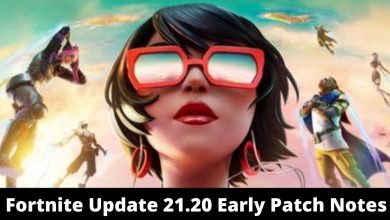Four good things that have happened for theatre in Toronto
Out of the darkness that COVID-19 brought to the performing arts have come bright new initiatives and novel pivots.
In the first year of the pandemic, performing arts in Toronto lost more than $900 million in revenue, and the Omicron variant disrupted what was planned to be a major return to live stage performance in Toronto in January, 2024.
Artists and arts workers are resilient, though. Here are four good things that have happened for theatre in Toronto — and beyond — during the pandemic:
Toronto-based phone show goes global: Outside the March (OtM), known for its innovative site-specific and immersive shows, launched “The Ministry of Mundane Mysteries” in late March, 2020. In this one-on-one experience, an audience member receives a week of phone calls from a “private inspector” who helps them solve a minor personal conundrum (mine was a jigsaw puzzle lost in the mail).
OtM has now solved over 1,000 mysteries in 233 cities worldwide and has continually innovated the format. The latest version of the show is an hour-long, single-episode experience for which the company received a Canada Council of the Arts Digital Now grant, allowing them to hire 25 actor-inspectors from around the country. Companies in Mumbai, India and Lima, Peru have created versions of the show; there was a Playdate version for young audiences; a Frontline edition was offered free of charge to frontline workers; there are two different American Sign Language versions; and a Pay-it-Forward initiative allowed audiences to donate an experience to someone in need.
“It’s honestly been the project that has injected the most joy into the company of anything we’ve ever worked on,” said artistic director Mitchell Cushman. And it’s not just audiences who benefit.
“There was something artistically therapeutic about it that I did not expect,” said Sébastien Heins, OtM’s associate artistic director and one of its original private inspectors.
At a time when so much seems overwhelming, solving a little problem takes on big significance: “It’s fictional, obviously, but comforting,” said Cushman of the Ministry, “this place that feels like somewhere you can put your faith in, that can figure out the unexplainable.”
A new theatre company with national scope: Before the pandemic hit, Ray Hogg was dreaming up Prime Mover Theatre Company —s an ambitious plan to advance marginalized Canadian theatre artists through large-scale co-productions, and professional and creative development activities. He initially didn’t see a way to act on those plans during COVID-19 and “put the company back in the Google Drive,” he said.
Then George Floyd was murdered, and in June 2020 multiple generations of Black Canadian theatre artists talked about of their experiences of racism and career barriers in the Stratford Festival digital panel, “Black Like Me.” The panel “woke up that thing in me that is driven to help and is driven to support artists and make their work easier,” said Hogg.
And so, Prime Mover moved ahead. In late 2020 the company launched a number of creative development activities, and this year it will ease into live programming with “Race Cards (In Two Acts)”, a collaboration with acclaimed U.K. artist Selina Thompson on her “Race Cards” project, in which she continually updates 1,000 questions about race and presents them in a performance installation. Ten Canadian performing artists will participate together in a creation workshop with Thompson and each will individually create short, solo works in response to one of the questions.
“I’m actively trying to make theatre not like I did four years ago,” said Hogg. “How can I give artists a provocation that allows them to do the smallest amount of work for the greatest impact?”
A digital Indigenous playwriting circle: “The chances for Indigenous writers to come together in circle and talk about their work are few and far between,” said Métis playwright and director Matthew MacKenzie. He’s filling that gap with the Pemmican Collective, a new initiative providing commissions of $5,000-$10,000 each to 15 Indigenous artists, funded in part by COVID-specific initiatives including the Canada Council’s Digital Now. Each artist is receiving expert facilitation and a workshop of the play that results from their commission. And they also get the circle: periodic Zoom meet-ups which MacKenzie said will continue digitally, even when physical gathering is possible, so that geographical distance and the peripatetic life of artists don’t get in the way.
As part of the collective, Métis playwright and director Keith Barker is working on a new play about masculinity, based on his experience being raised by a single mother in Northern Ontario. Barker anticipates that Pemmican will help him “carve time for writing again” among his other commitments, which include his newly-announced appointment as head of new play development at the Stratford Festival.
Being invited into the Collective left Aria Evans feeling “surprised, humbled, honoured and intimidated.” Choreographer Evans, who identifies as multi-racial (Afro-Indigenous and settler), is developing a script for a dance theatre piece, and said that the group Zoom meetings provide multiple benefits: “In giving feedback I also learn about my own personal taste,” they said. “Being able to see your work through someone else’s eyes, mind and spirit before it reaches an audience is such a gift.”
A venerable queer festival regenerates: Founded in 1979, Buddies in Bad Times Theatre’s Rhubarb! Festival has always been about experimentation and boundary-pushing, and didn’t let the pandemic shut it down. Last year the festival took the form of a book, bringing together the work of over 20 artists under the editorship of festival director Clayton Lee.
This year, Lee is curating a “bacterial residency”: a large-scale installation — “Calculus of an infinite rot, vol. 1” — designed by Andrea Shin Ling, made up of 34 tree stumps, some of which have been intricately carved and some injected with bacteria and fungi, so that they will mould and transform throughout the 10-day festival. Artists making performances as part of the festival are invited to engage with and leave their mark on Ling’s installation.
If this sounds yukky, that’s “intentional,” said Ling. “I do want this kind of visceral reaction where you have to confront these processes … Decay is paired with regeneration. You have to acknowledge the grossness to get the benefits of regenerational systems.”
While this festival concept was previously planned, it’s hard not to read this focus on deterioration onto the recent period of crisis at Buddies, which saw the theatre’s entire board of directors step down in January. “It’s easy to flatten and say ‘Buddies is dead’ or ‘things are ruined’ instead of looking deeper into what the possibilities are,” said Lee, when asked about these resonances. “The algorithm of social media loves to flatten and loves to give us instant gratification, whereas these objects aren’t about gratification.”
Rhubarb! continues through February 13.
JOIN THE CONVERSATION
/https://www.thestar.com/content/dam/thestar/entertainment/stage/2024/02/09/four-good-things-that-have-happened-for-theatre-in-toronto/_3_otm_mystery_series.jpg)
/https://www.thestar.com/content/dam/thestar/entertainment/stage/2024/02/09/four-good-things-that-have-happened-for-theatre-in-toronto/_5_ray_hogg.jpg)
/https://www.thestar.com/content/dam/thestar/entertainment/stage/2024/02/09/four-good-things-that-have-happened-for-theatre-in-toronto/_2_selina_thompson.jpg)
/https://www.thestar.com/content/dam/thestar/entertainment/stage/2024/02/09/four-good-things-that-have-happened-for-theatre-in-toronto/_4_aria_evans.jpg)




